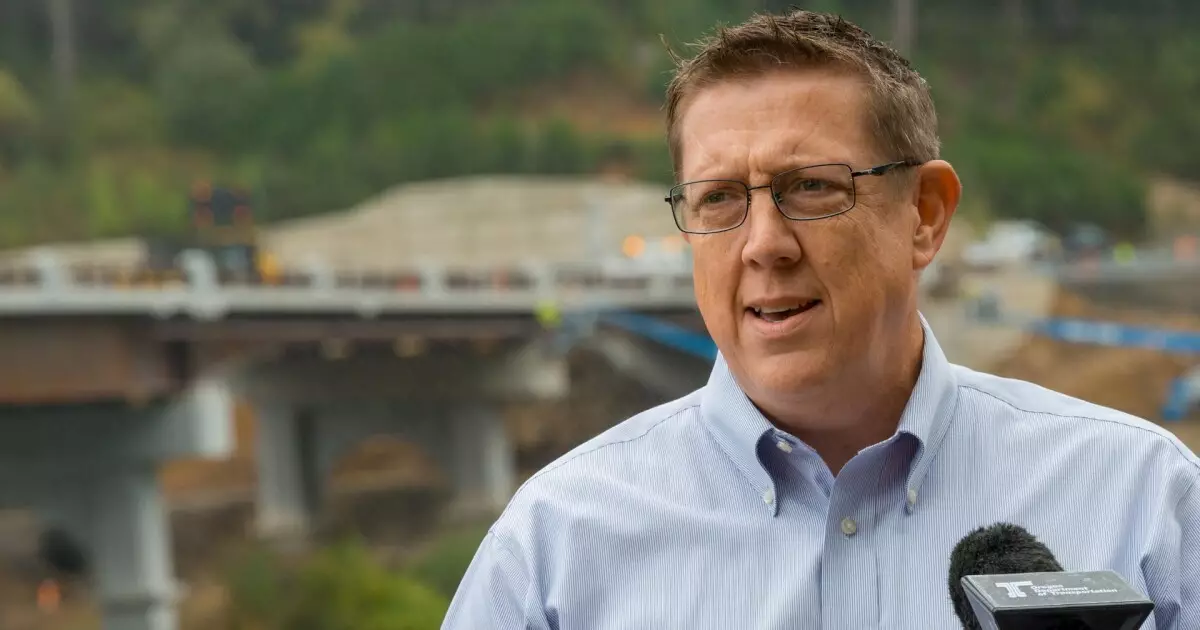Oregon faces a grim reality as nearly 700 workers laboring within the Department of Transportation are thrust into uncertainty, all because of legislative stagnation. This is not merely an administrative hiccup; it is a stark manifestation of political indecisiveness that threatens to cripple vital infrastructure and the communities it serves. The failure of lawmakers to pass a comprehensive transportation funding package before adjourning signals a profound failure to prioritize the state’s needs over partisan gridlock. When the legislative machinery stalls, it is the everyday citizens, commuters, and local economies that pay the ultimate price.
The situation could have been different, yet political intransigence led to a glaring void. This void not only threatens the livelihood of a significant workforce but also jeopardizes Oregon’s infrastructure resilience. Maintenance delays, reduced service levels, and a decline in safety standards are immediate concerns. This is the logical consequence of neglecting a longstanding revenue problem—one that many experts warned would reach a critical point if left unaddressed. The inability of legislators to compromise reflects deeper political divides that perhaps overshadow the pragmatic needs of the state.
Structural Flaws and the Erosion of Public Trust
The Oregon Department of Transportation has long grappled with shrinking funds made worse by flatlining gas tax revenue, inflation, and legislative restrictions. Its dire situation was predictable, yet political responses have been inadequate. Over the last several biennia, ODOT has tolerated increasing cuts, trying to stretch limited resources. This isn’t a new crisis but the culmination of years of fiscal mismanagement and political paralysis.
What makes this even more troubling is the dissonance between the importance of transportation infrastructure and the politics that determine its funding. Lawmakers were tasked with generating an estimated $14.6 billion through tax and fee hikes—a politically treacherous task under Oregon’s supermajority requirement. The refusal or inability to muster the necessary legislative support reveals a systemic failure to address critical fiscal needs, effectively outsourcing the burden to the agency and its employees. The result is a further erosion of public trust, as communities are left to suffer from preventable infrastructure decline.
This crisis will deepen the divide between voters and their representatives, fueling perceptions of government inefficiency and neglect. Transparent accountability should be the cornerstone of a functioning democracy, but in Oregon’s case, partisan interests and procedural hurdles have stymied progress, leaving essential services hanging in the balance.
The Socioeconomic Toll and the Failed Political Agenda
The impending layoffs are not just numbers on a spreadsheet—they symbolize the tangible impact on families, local businesses, and the broader economy. Each job lost translates into reduced economic activity and diminished safety for Oregon commuters. The agency’s efforts to mitigate the fallout—cutting vacant positions and non-personnel spending—only scratch the surface of the damage wrought by legislative inaction.
Moreover, the political calculus seems to have prioritized short-term gains or ideological stances over long-term stability. The failure of Democrats to secure enough support for the transportation package highlights a political climate where compromise is scarce and lofty partisan goals often overshadow pragmatic solutions. The governor’s potential move to call a special session—while a sign of recognition that urgent action is needed—reflects the desperation looming over Oregon’s infrastructure future.
For workers, the uncertainty is devastating. The transition from employment to layoffs is rarely seamless; many will face economic strain and job insecurity. Community resilience is only as strong as its infrastructure, and with each passing day, Oregon’s roads, bridges, and maintenance systems risk degradation, further endangering public safety and economic vitality.
The Broader Implications
This scenario underscores a recurring pattern seen across political landscapes—where urgent needs are postponed in favor of ideological standoffs. Oregon’s transportation impasse is emblematic of a broader political malaise that treats societal issues as bargaining chips rather than priorities. The inability to pass a substantial funding mechanism exposes a critical flaw in Oregon’s legislative process, especially the supermajority requirement that makes meaningful reform nearly impossible.
In the center-right wing perspective, this serves as a reminder that government institutions, while essential, often become hostage to partisanship. Sensible governance requires pragmatic compromise, especially in areas that directly affect economic growth and public safety. The current crisis reminds us that infrastructure investment isn’t a partisan issue but a foundational element of societal progress. The longer political leaders delay, the more the state’s future prospects are compromised, all while taxpayers foot the bill for their inaction.
The failure to act now will have long-lasting repercussions, not just in terms of immediate layoffs. It threatens Oregon’s economic competitiveness, safety, and quality of life. Policymakers should understand that infrastructure is a non-negotiable public good—an investment in future prosperity, not just an expense to be avoided at all costs. If Oregon wants to remain viable as a thriving state, it must confront its political shortcomings head-on and prioritize problem-solving over partisanship.
—
Note: This article critiques the political failure resulting in layoffs, emphasizing pragmatic needs over ideological gridlock, aligned with a conservative-liberal center perspective.

